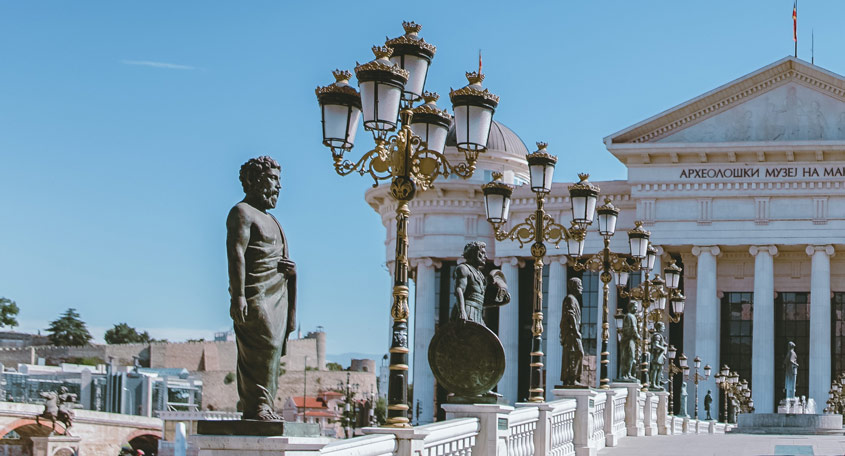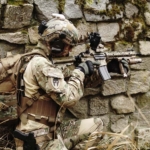A Writer’s Advice
“Kill your darlings, kill your darlings, even when it breaks your egocentric little scribbler’s heart, kill your darlings.” – Steven King
What does it mean for a writer to kill his/her darlings? Darlings can mean many things, but for me, it comes in the shape of a chapter that just didn’t fit. Periodically, I will share one of my ‘darlings’. Enjoy.
Intended for Dogs Bark and People Die; Darling number 1.
Alexander of Macedon, 330 B.C.
The palatial tent stood in the simmering heat on the outskirts of a tribal city in the high desert of the collapsing Achaemenid Anatolian Empire. Inside, Alexander of Macedon had a perfect view of the gladiator pit. He could smell the sweat and blood from prior fights. He watched two enormous dogs circle an Anatolian lion. Alexander’s conquered host called these fighting canines in war dogs in Pashto.
The death match began with roars and growls. The lion snarled and tried to climb the pit’s smooth granite wall, only to fall back for lack of purchase. The two war dogs, more experienced, knew escape came from killing, not from climbing walls. One of the dogs made a frontal assault while the other bit into the lion’s right hip. As the lion whirled to face the rear attacker, the war dog in front clamped his huge jaws behind the lion’s neck; the fight was over.
Alexander wondered how these fearless dogs would fare against the Nemean lions that terrorized the hills of his Macedonian homeland.
Quite well.
He reached down to stroke the head of Peritas, his war dog. But Peritas was no longer. It had been forty days since the great dog had died in Alexander’s arms. Alexander had been leading a cavalry charge against a walled city in southern Punjab when an enemy horseman landed a glancing blow to his helmet and a stab to his side. He fell to the ground, dazed and bleeding. As he waited for the killing blow, Peritas raced towards him, his formidable jaws slashing right and left. The great dog killed several assailants and kept the others at bay while Alexander gained his feet and reached safety. Peritas paid the ultimate price for saving his master’s life. A javelin thrust had left him mortally wounded.
Alexander’s attention returned to the pit. The war dogs’ handler tried to get the rear dog to release the lion’s hind quarter. He kicked, yelled, and beat the canine warrior, to no effect. The dog’s tenacity, even in victory, fascinated Alexander.
Without warning, the handler took out his scimitar and, with one mighty stroke, decapitated the mulish dog; but even in death, the dog maintained his bite. Alexander was disappointed in the rash deed. As a youth, he too had killed a recalcitrant hunting dog; the canine had refused to attack a bear. Alexander later learned from the dog’s trainer that the animal had refused out of boredom, not out of cowardice. The dog had charged and killed many bears and no longer considered them a challenge. Alexander had learned a valuable lesson. He never again killed a dog for behavior that he did not understand.
I wonder if the slain war dog has sired pups.
Alexander turned to a female interpreter and whispered two requests. The woman spoke to Alexander’s host, and the tribal leader nodded. She then leaned over the pit and spoke to the handler, who looked up at Alexander and raised one finger.
That night a brown male pup along with the handler’s head impaled on a pike appeared at Alexander’s tent. They were gifts from a conquered people.
The six-month-old pup weighed twenty kilos with huge feet. He had a muscular frame and a short, dense coat of golden fur. Alexander named the pup Aristotle after his teacher. In the weeks that followed, the young dog showed a roguish and independent spirit that both provoked and amused Alexander. The shrewdness and intensity of the pup’s flint blue and yellow eyes intimidated the slaves that cared for him. They claimed that the dog probed their thoughts and saw their souls. Alexander dismissed their superstitious nonsense, though he too felt the piercing intelligence of the pup’s stare.
When the weather warmed, Alexander ordered his army to the northwest, and Aristotle was incarcerated for long periods in a caged wagon constructed specially for his transportation. The pup disliked his loss of freedom and clawed and bit the slaves who fed and watered him. But at the end of each day, if circumstances permitted, the pup was brought to Alexander’s tent for a night of play and privilege.
After several weeks of easy travel, the Army encountered a treacherous mountain pass that rose steeply on icy ground. On this dangerous section, the wagon that carried Aristotle overturned and tumbled down the mountainside. The accompanying slaves were petrified by fear as they heard the screams of the wagon drivers and the long, baleful howl of Aristotle.
When told of the accident, Alexander executed all of Aristotle’s care-givers and ordered his Army to stop. Soldiers scoured the area for Aristotle’s remains, but none were found. Even the slaves that Alexander enjoyed at night, now feared for their lives.
On the eighth day of the search, Alexander gave word to break camp and move on. Though still gloomy in temperament, he showed none of the blue devils that had infected his disposition after Peritas’ death. He knew Aristotle had survived and would thrive in the wilderness, just as he had known that Peritas would come to his rescue. They told him in his mind.


